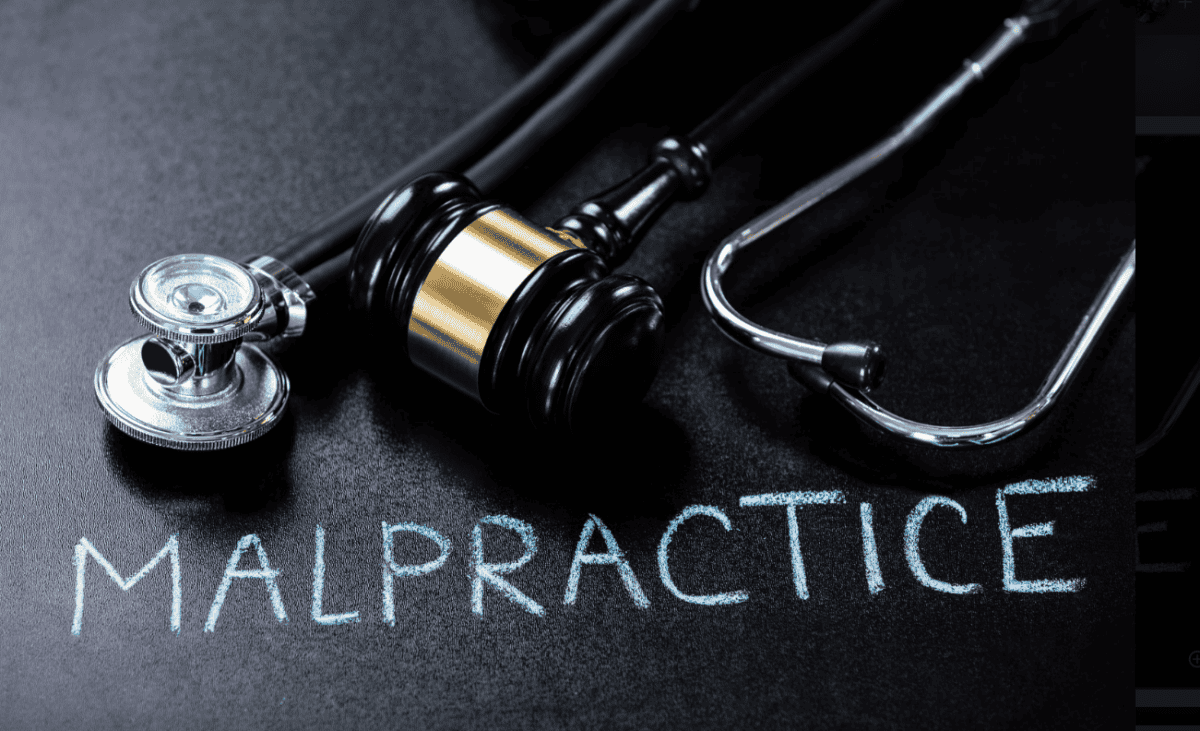Understanding how medical malpractice settlements and how they work can help you deal with this challenging process more effectively. What should you know about evaluating your case and negotiating a fair settlement?
Did you know that medical malpractice is a major issue in the U.S., leading to approximately 251,000 deaths each year due to medical errors? Medical malpractice cases can have devastating effects on patients and their families, leading to severe injuries, prolonged suffering, or even death.
When dealing with medical negligence in California, where specific laws and regulations govern the healthcare system, it is crucial to understand the intricacies of malpractice settlements. When medical professionals fail to provide the standard of care, victims may seek to hold them accountable through legal action.
Let’s take a closer look into medical malpractice settlements and how they work.
Understanding Medical Malpractice
Medical malpractice is considered a breach of duty if the professional does not act as a reasonable provider would act under similar circumstances. This information is important to know if you or someone you know has experienced medical errors or negligence.
For a valid malpractice claim, you must prove duty, breach, causation, and damages.
The healthcare provider must have had a responsibility to take care of you. Next, you need to show that they broke that responsibility by not providing the expected standard of care.
Then you must demonstrate a direct connection between this failure and the harm you experienced, which is called causation. You need to show that you suffered actual damages, including medical bills, lost income, or emotional pain.
Lake Charles personal injury attorney Lee Schwalben says a personal injury lawyer who has experience with medical malpractice can carefully look at a few key aspects of a possible case to see if there was negligence and if the case is worth pursuing.
Knowing these elements can help you when pursuing a claim if your medical care is inadequate. It’s important to understand your rights and the options available to seek compensation

Common Types of Malpractice Cases
Medical malpractice can happen from various incidents, but some types are more common.
Surgical errors are among the most frequent, including wrong-site surgery, anesthesia mistakes, and complications from poorly managed procedures.
Another common cause is misdiagnosis or delayed diagnosis. This occurs when a healthcare provider fails to correctly identify a condition or delays treatment, leading to serious health consequences.
Medication errors are also prevalent. These happen when a doctor prescribes the wrong medication, an incorrect dosage is given, or the patient receives improper instructions.
Birth injuries are another significant type of malpractice, often involving negligence during labor and delivery, resulting in harm to the newborn or mother.
Neglect in patient care is also a critical issue, frequently seen in nursing homes or hospitals, leading to severe complications.
How Medical Malpractice Is Evaluated
When evaluating a medical malpractice case, you must determine if the healthcare provider acted as another skilled practitioner would. Some factors become relevant during this assessment.
Review all the actions taken by the healthcare provider to see if they align with what is considered medically accepted by other practitioners. This involves comparing your case to similar situations in the medical community.
Check if the provider’s actions caused harm. This means linking the provider’s negligence to your injury or worsening condition. Without this connection, it isn’t considered malpractice.
Important factors include medical records, treatment notes, and expert opinions, which help build a comprehensive picture of the case.
The Role of Medical Experts
Establishing the merits of a medical malpractice suit is important, and involving medical doctors is necessary. They provide insights into the standard of care that should have been provided in your case. Their opinions help determine if the healthcare provider deviated from those standards, affecting your claim’s strength.
Medical experts, such as physicians, nurses, or specialists familiar with the medical issues involved, often testify. Their testimonies will explain medical evidence in simple terms for judges and juries. Having a credible medical expert can influence the outcome of your case.
These experts should have extensive experience and work related to your case. A good reputation adds credibility to their opinions on the negligence claim.
The expert will review medical records, attend depositions, and sometimes testify at trial, not just provide opinions.
The right medical expert can make a big difference in winning or losing a medical malpractice case. It’s important to spend time selecting the right one for your situation.
Medical Malpractice Settlements and How They Work
Handling the settlement process in a medical malpractice case can be challenging, but understanding the steps can make it easier.
Start by gathering all relevant medical records and evidence to support your claim. Strong documentation strengthens your case.
After filing a formal complaint, the defendant’s insurance company will investigate. They will review your evidence, request additional information, negotiate with you, and may offer a settlement early on. You need to decide if the offer is acceptable.
If the first offer does not work, you can make a counterproposal. This back-and-forth negotiation may continue until both parties reach an agreement. If negotiations stall, mediation might be a good option. A neutral mediator can help facilitate discussions and find a resolution.
If mediation fails, you can proceed to litigation, but most cases are settled before reaching a trial. Having a skilled attorney throughout this process can provide valuable guidance and make sure you are well represented.
Factors Influencing Settlement Amounts
The medical negligence settlement you are given is bound to be influenced by several factors.
The severity of your injury is one important factor above all. Damage arising from your injuries that present possibilities of long-term health problems or require ongoing medical treatment will be in line for an even bigger settlement.
Your ability to prove negligence is important. If you can show that the medical professional did not meet the standard of care, your case will be stronger.
The impact on your daily life, including lost wages and emotional distress, is also considered.
The court where your case is filed matters too, as different states have different malpractice laws that can affect the settlement amount.
The reputation of the medical provider is another factor. A provider with a bad history of malpractice would be more willing to make a deal and not prolong the pain by going to court.
Having a skilled lawyer can influence your settlement. A competent attorney will protect your rights and help you achieve a better outcome.
Negotiating a Settlement
How do you negotiate a medical malpractice settlement?
Gather all your evidence, including medical records, expert opinions, and proof of damages. This evidence should support your case and show its value.
Determine a reasonable settlement amount based on your evidence and the costs incurred, such as medical expenses, lost wages, and pain and suffering. Be realistic and avoid overstating your claim.
Be straightforward and confident, using your evidence to justify the amount you are asking for. Be prepared to explain why you deserve this compensation.
Expect some back-and-forth negotiation. The initial low offer from the insurance company is a common strategy. Stay firm but flexible, and be willing to adjust your expectations to find a middle ground. Always keep communication open and courteous.
If negotiations fail, consider involving a mediator or an attorney experienced in medical malpractice. They can help facilitate the process and work towards a fair settlement.

Legal Considerations and Pitfalls
Understanding the legal aspects and potential pitfalls of a medical malpractice settlement is necessary. Know your state’s statute of limitations. If you wait too long to file, you could lose your right to compensation.
Be cautious about accepting a settlement too quickly. Insurance companies often offer less than you deserve, hoping you’ll accept it to avoid hassle. Carefully consider any offer and consult a personal injury specialist.
Read all documents thoroughly, as some settlements may require you to waive your rights to future claims related to the incident. Avoid making public statements about your case, as anything you say can be used against you. Keeping these details private is best.
What to Expect After a Settlement
The settlement fund will cover all legal fees and medical liens before you receive your portion. Your attorney will guide you through this process, as is standard with any settlement.
Once you get the funds, you must manage them wisely. A financial advisor can help you allocate the money properly, especially if the payout is large. Setting aside cash for future medical needs can be a smart investment.
The emotional impact of your experience doesn’t disappear with the settlement. Consider seeing a therapist or joining a support group, as healing takes time, and seeking help is important. Even though your case is settled, stay aware of your legal rights. This knowledge can protect you in future situations.
Final Words About Medical Malpractice Settlements
Handling medical malpractice settlements can be complicated, but understanding the process can help you secure compensation. Legal representation can impact your outcome, and managing the settlement properly is necessary for your recovery. Stay informed, advocate for yourself, and take these steps to guarantee the best possible health after a settlement.


